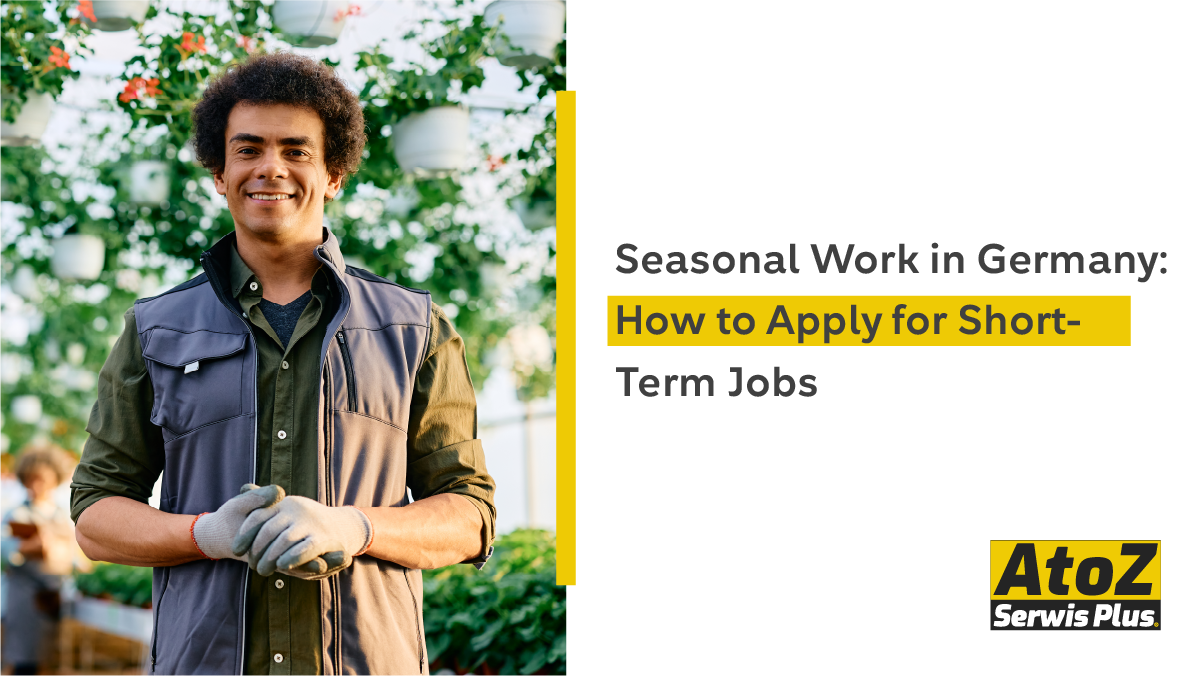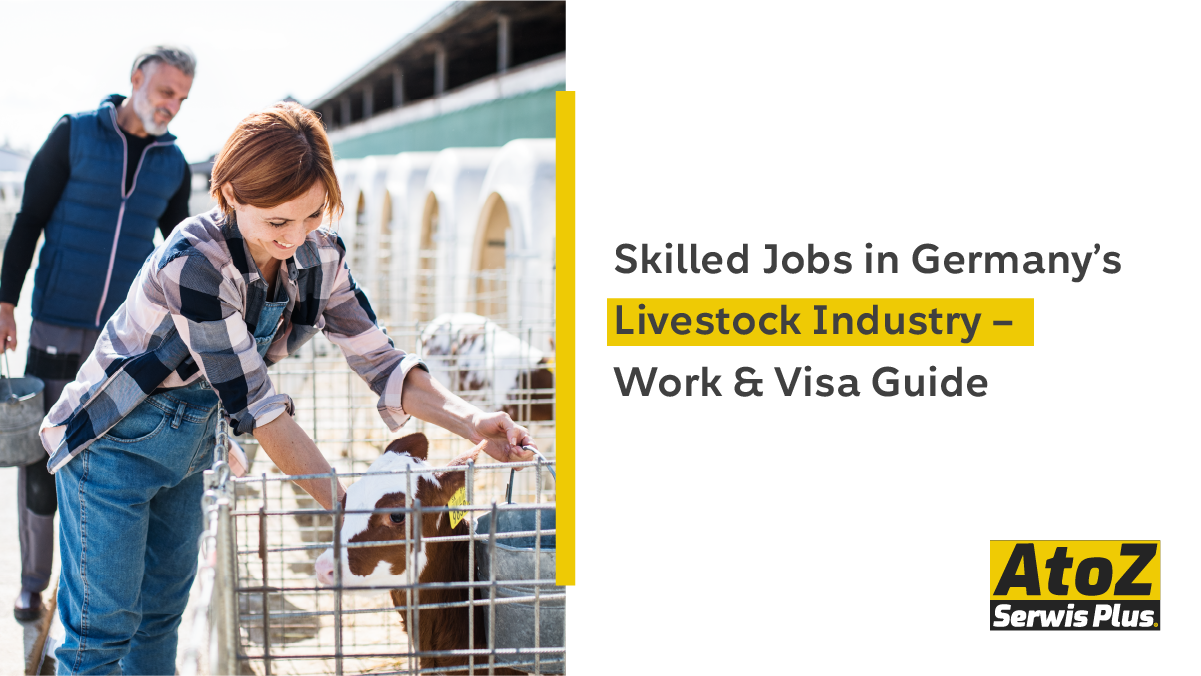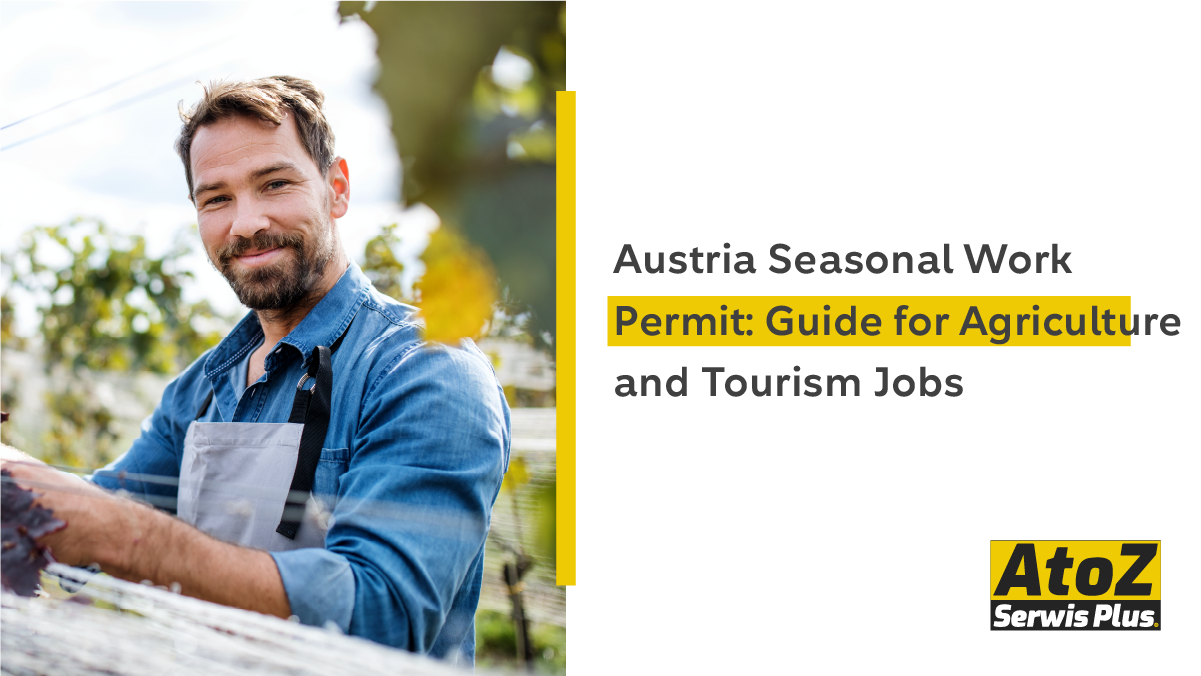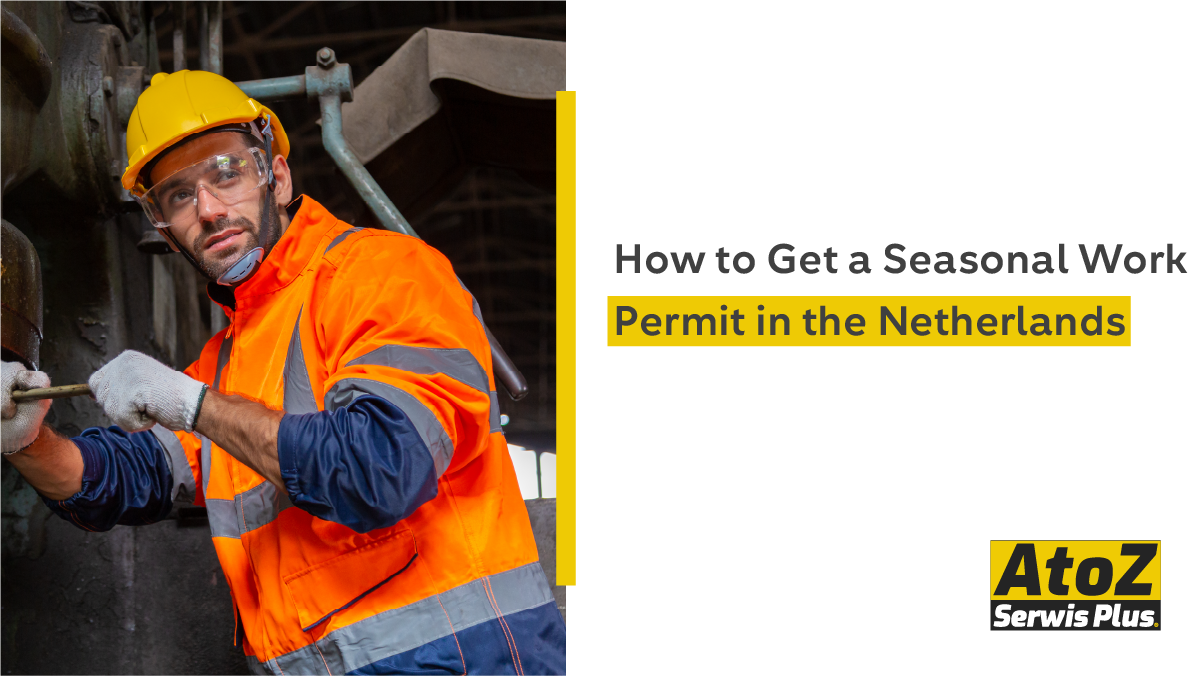

Seasonal Work in Germany: How to Apply for Short-Term Jobs
Seasonal work in Germany is one of the most popular legal pathways for non-EU nationals who want to work in Europe for a short period. Every year, Germany welcomes thousands of seasonal workers, especially in agriculture, horticulture, hospitality, and food production, to help during peak seasons such as harvesting or tourism months.
To work legally, foreign nationals must apply for a Seasonal Work Visa or Permit, regulated by German labour law and supervised by the Federal Employment Agency (Bundesagentur für Arbeit).
This complete guide explains everything about the application process, documents required, salaries, rights, and taxation for seasonal workers in Germany.
What is a Seasonal Work Permit in Germany?
A Seasonal Work Permit allows non-EU/EEA nationals to work in Germany for up to 90 days per calendar year in industries where there is a shortage of local labour. Unlike long-term work permits, this visa is strictly for short-term employment during peak seasons.
The programme ensures that seasonal workers receive legal contracts, fair wages, safe working conditions, and social protection, as required by German law.
Who Can Apply?
You may apply for a Seasonal Work Permit in Germany if you are:
- A non-EU/EEA or non-Swiss national
- In possession of a valid job offer from a German employer
- Covered by health insurance valid in Germany
- Able to provide proof of accommodation during your stay
- Willing to return home after the permit expires
In-Demand Seasonal Jobs in Germany
Germany’s seasonal labour market is diverse, but the most significant demand comes from agriculture and hospitality. Common jobs include:
- Agriculture – fruit and vegetable harvesting (asparagus, strawberries, grapes, apples, berries)
- Horticulture/Greenhouses – flower planting, cucumber and tomato picking
- Hospitality and Tourism – hotels, restaurants, summer resorts, ski resorts (kitchen assistants, cleaners, servers, reception staff)
- Food Processing & Packaging – meat processing, canning, packaging lines
- Logistics & Warehousing – order picking, short-term distribution jobs
Required Documents
To apply for a German Seasonal Work Visa, you will typically need:
- Valid passport (with at least 6 months remaining validity)
- Employment contract/job offer from a German employer approved by the Federal Employment Agency
- Proof of accommodation in Germany (provided by employer or private rental)
- Health insurance covering the whole duration of stay
- Biometric passport photos
- Completed visa application form (from the German embassy or online, where available)
- Proof of financial means (if requested)
- Visa fee payment receipt
How to Apply for a Seasonal Work Permit in Germany – Step by Step
Step 1 – Secure a Job Offer
You must first receive a valid job offer or contract from a registered German employer. Seasonal jobs are often filled through:
- German recruitment agencies approved by the Federal Employment Agency
- Direct applications on German job boards or company websites
- Agricultural associations that regularly hire seasonal staff
Step 2 – Employer Applies for Approval
Your employer in Germany must apply for labour approval from the Federal Employment Agency (Bundesagentur für Arbeit). This ensures the job qualifies as seasonal and meets German labour standards.
Step 3 – Prepare Your Documents
Gather all required paperwork, including your passport, contract, health insurance, and accommodation proof. Make sure your documents are up-to-date.
Step 4 – Submit Your Application
You can apply for the seasonal visa at the German embassy or consulate in your home country.
- Some employers assist workers with applications by providing documentation directly to the embassy.
- Appointments must usually be booked in advance due to high demand.
Step 5 – Pay the Visa Fee
- Seasonal visa fee: Around €75
- Paid at the embassy at the time of submission
Step 6 – Wait for Processing
Processing times vary, but typically:
- 4–8 weeks, depending on the embassy and employer’s approval status
Step 7 – Collect Your Visa
If approved, you’ll receive a visa sticker in your passport, which allows you to travel to Germany for the period stated in your contract.
Step 8 – Travel to Germany and Register
Upon arrival in Germany:
- Report to your employer
- Register your residence at the local registration office (Einwohnermeldeamt)
- Begin work according to your contract
Step 9 – During Employment
While working in Germany:
- Always carry your passport and visa with you
- Respect working hours and contract terms
- Pay taxes (usually deducted at source by the employer)
- Keep valid health insurance throughout your stay
Step 10 – After Your Permit Expires
- Seasonal workers must leave Germany when their contract ends
- Overstaying may lead to fines, deportation, or Schengen bans
- Workers may apply again in the next season with a new contract
Average Salaries for Seasonal Workers in Germany
|
Job Type |
Hourly Wage (€) |
Benefits Provided |
|---|---|---|
|
Agriculture/Farming |
€9.50 – €12 |
Accommodation, free meals often included |
|
Greenhouse/Horticulture |
€10 – €12 |
Housing support, transport |
|
Hospitality/Tourism |
€11 – €14 |
Staff meals, discounts, and lodging |
|
Food Processing |
€10 – €12 |
Shared housing, factory canteen |
|
Logistics/Warehouse |
€11 – €13 |
Overtime pay, transport allowance |
Employment Rules & Worker Rights in Germany
- Working Hours: Maximum 48 hours per week, overtime compensated
- Minimum Wage: Seasonal workers are entitled to at least €12/hour (2025 rate)
- Contracts: Must include employer details, job role, duration, salary, and benefits
- Health Insurance: Compulsory for all seasonal workers; employers often assist in arranging it
- Taxes: Seasonal workers pay income tax; often deducted at source under flat-rate taxation rules
- Accommodation: Many employers provide free or low-cost housing for seasonal staff
Why Work Seasonally in Germany?
- High demand for workers every year in multiple industries
- Legal contracts & safe working conditions under German labour law
- Competitive pay with accommodation and meals often included
- Cultural experience living and working in Germany
- Opportunity to return each season with new contracts
FAQs – Seasonal Jobs in Germany
- How long can I work in Germany with a Seasonal Work Permit?
Up to 90 days per calendar year. - Do I need a job offer before applying?
Yes, a signed contract from a registered employer is mandatory. - How much is the visa fee?
Approximately €75. - Which sectors hire the most seasonal workers?
Agriculture, horticulture, hospitality, food production, and logistics. - Can I extend my permit?
No, extensions are not possible. You must return home after the contract has been fulfilled. - Do EU citizens need a permit?
No, EU/EEA nationals can work freely. - Can I bring my family on a seasonal visa?
No, family reunification is not allowed for short-term visas. - How long does the process take?
Typically 4–8 weeks, depending on embassy workload. - Do I need health insurance?
Yes, it is compulsory for all workers. - What salary can I expect?
Between €9.50 and €14 per hour, depending on the sector and employer.
Final Thoughts
Germany is a top destination for seasonal workers, especially in agriculture and hospitality. With thousands of vacancies each year, fair wages, and strong worker protections, it’s an excellent choice for those seeking short-term work in Europe.
AtoZ Serwis Plus can assist you in finding seasonal jobs, preparing documents, and applying for your German Seasonal Work Visa, providing full support at every stage.


















